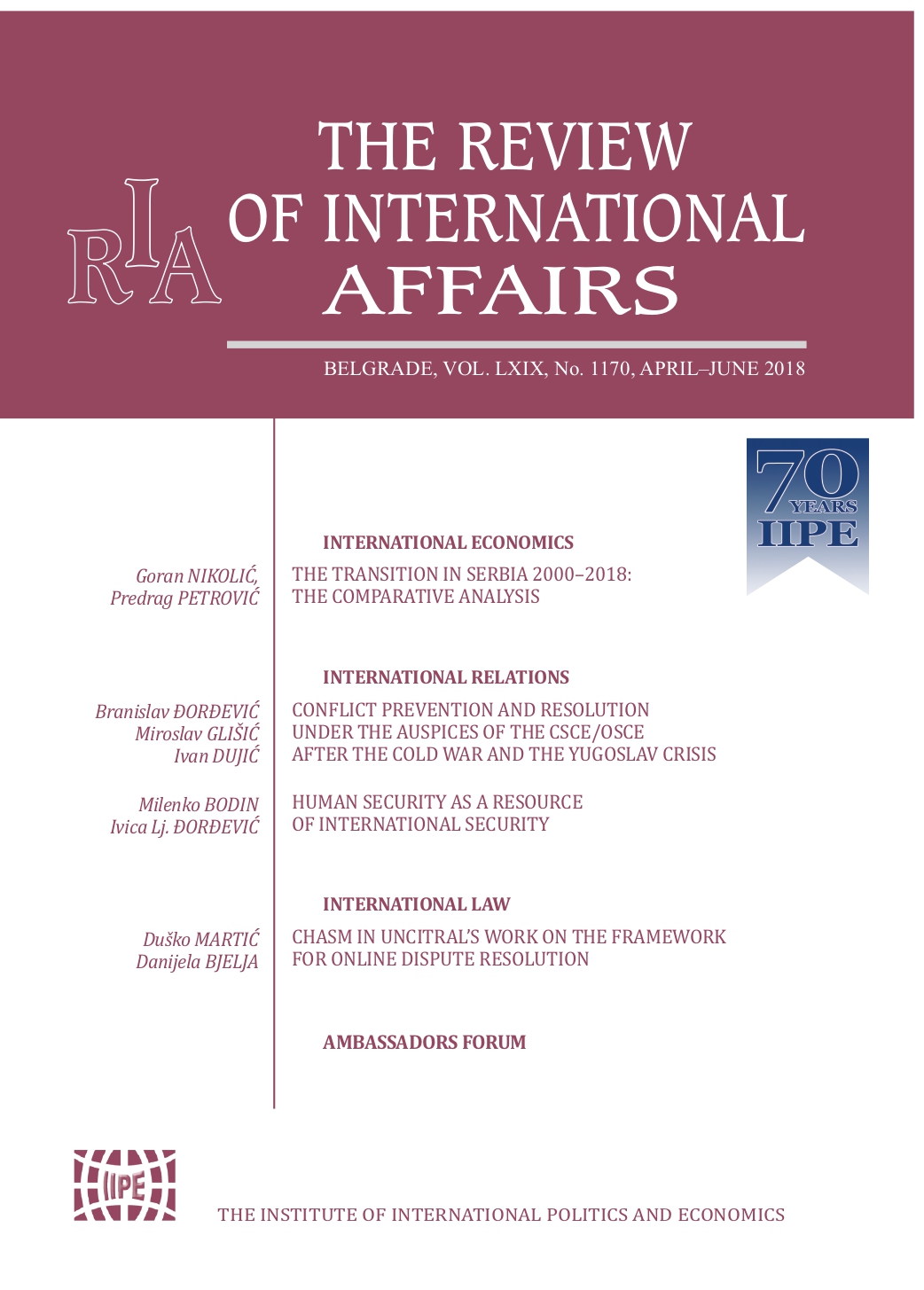Conflict prevention and resolution under the auspices of the CSCE/OSCE after the Cold War and the Yugoslav crisis
Conflict prevention and resolution under the auspices of the CSCE/OSCE after the Cold War and the Yugoslav crisis
Author(s): Branislav Đorđević, Miroslav Glišić, Ivan DujićSubject(s): Politics / Political Sciences
Published by: Институт за међународну политику и привреду
Keywords: conflict prevention and resolution; Yugoslav crisis; CSCE and OSCE
Summary/Abstract: After the end of the Cold War, the CSCE began re-examining its goals of existence and redefine them in line with the newly emerging environment. The initial intentions of the CSCE to become a pan-European cooperative security institution were replaced under the influence of the Yugoslav crisis by developing the necessary capacity to prevent and resolve conflicts in its region. Accordingly, under the influence of the crisis in the former Yugoslavia have been developed many structures and institutions, instruments, mechanisms and procedures to reduce risks, for early warning, conflict prevention, crisis management and post-conflict rehabilitation in Europe. The paper describes the development of capacities for cooperation in the area of conflict prevention and resolution of the Conference on European Security and Co-operation, and later of the Organization for Security and Co-operation in Europe under the influence of the Yugoslav crisis in the period from 1990 to 1999.
Journal: The Review of International Affairs
- Issue Year: LXIX/2018
- Issue No: 1170
- Page Range: 25-49
- Page Count: 25
- Language: English

